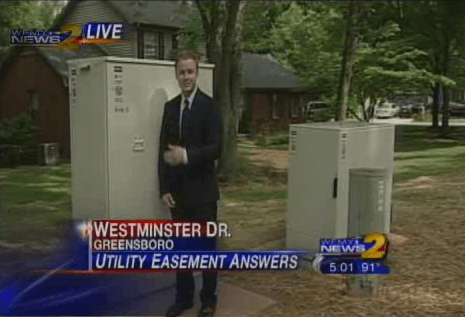 America’s worst-rated cable company is facing an apparent customer backlash on two fronts — its introduction of usage caps and at least one disgruntled unidentified citizen who mailed Mediacom a white powdery substance that forced a temporary closure of one hospital and left two Mediacom employees and two Washington County, N.C. sheriff’s deputies quarantined Wednesday.
America’s worst-rated cable company is facing an apparent customer backlash on two fronts — its introduction of usage caps and at least one disgruntled unidentified citizen who mailed Mediacom a white powdery substance that forced a temporary closure of one hospital and left two Mediacom employees and two Washington County, N.C. sheriff’s deputies quarantined Wednesday.
Deputies launched an investigation after Mediacom employees handled and opened a plain envelope that was found to contain an unknown substance. Employees unintentionally exposed two sheriff’s deputies to the material after they responded to the incident. As a precaution, Mediacom’s Plymouth office was evacuated and both employees and police were decontaminated in an area hospital also placed on lockdown.
All are reportedly doing fine and the unknown substance was sent to Raleigh for further examination. Authorities won’t release further details about the envelope or its contents as the investigation is ongoing, but did say the substance turned out not to be harmful.
Earlier this month the cable company announced it was introducing variable usage caps for customers who either add or change broadband services after August 1. Current customers will be grandfathered under Mediacom’s informally uncapped usage plans, but cannot make changes to their packages without choosing one of several new usage-limited plans. (Thanks to Stop the Cap! reader Curt for sending along the details.)
The caps range from 150GB for Mediacom’s lightest-use plan Launch, which offers 3Mbps downstream, 250GB for the popular 15/1Mbps Prime plan, to 999GB for the company’s 50/5 Ultra and 105/10Mbps Ultra Plus plans.
A Mediacom representative explained the company’s reasons for the usage caps:
“We’ve implemented the usage allowances to ensure we can deliver on our promise of Always Faster Internet,” said “Chad” — from Mediacom Social Media Relations in Gulf Breeze, Fla. “In reality, only 2% of our users exceed our usage allowances. This 2% can use over 19 times what the average household would use, and this can dramatically impact the service you experience in your home. It could cause us to raise our rates for everyone, just to accommodate the excessive use of a few.”
Unfortunately, not every Mediacom customer currently has access to a company-developed usage measurement tool. If a customer exceeds their limit, Mediacom will charge a flat $10 for every 50GB segment over that amount.
Mediacom’s need to implement usage caps is open to debate, however.
The company’s latest 10-Q report filed with the Securities & Exchange Commission, Mediacom admits it has already increased rates for its broadband customers – heavy users and otherwise. At the same time, Mediacom admits its costs to operate its broadband service have dropped 18.7%, principally due to lower connectivity costs.
 In fact, the largest costs Mediacom faced included:
In fact, the largest costs Mediacom faced included:
- Field operating costs, which grew 13.7% as the company increasingly relies on outside, third-party contractors;
- Marketing costs increased 13.8% to pay for the company’s rebranding, junk mail marketing, and advertising;
- Employee costs increased 23.5%, primarily to beef up its marketing and direct sales to potential business customers.
Nothing in Mediacom’s required declarations to the SEC show any impact by so-called “heavy users” on its broadband service costs or revenues. If they represented any potential threat to the company’s value to investors, disclosure as a “risk factor” is required by law.
[flv width=”480″ height=”380″]http://www.phillipdampier.com/video/WNCT Jacksonville Investigation continues following Mediacom Powder 8-8-12.flv[/flv]
WNCT in Jacksonville, N.C. covers a potential anthrax scare when an unidentified person mailed a plain envelope to Mediacom in Plymouth containing a white, powdery substance. (2 minutes)


 Subscribe
Subscribe






